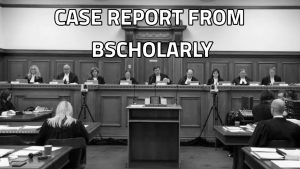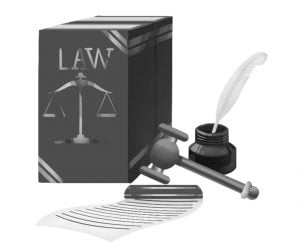Facts, issues and decision of the court in Scottish Co-operative Wholesale Society Ltd v Meyer: A company, once incorporated, becomes a separate legal entity, and as such makes its own decisions and takes its own actions through its members and board of directors.

In a company, corporate sovereignty applies. This entails that although the minority will have a say, the majority will have its way. The company will, in this way, decide on the wrong it will rectify or sue for. The above principle is as expounded in the case of Foss v Harbottle. There are however, exceptions to the rule in Foss v Harbottle. Where there is an illegal or ultra vires act; where the individual rights of the minority members are affected; where the act done is done irregularly, especially when the procedures in the Companies Act or the Memorandum are not being followed; where the directors have benefited themselves by the act without disclosing such to the company; and where fraud has been committed on the company or the minority shareholders.
Another exception to the Rule in Foss v Harbottle is a situation where the conduct of the affairs of the company has been found to be oppressive and unfairly prejudicial.
Thus, in order to protect the minority, several actions can be brought. They are Personal action, Representative action and Derivative action.
Personal and Representative Actions can be categorized under what is called Members’ Direct Action.
Personal action refers to an action brought by an individual member whose right has been infringed. Here, he sues under his own name.
Representative action is one brought by some members of the company on behalf of other members. Thus, it is brought in a representative capacity. This is where the rights of those members have been collectively infringed.
Personal and representative action do not attract damages as relief but can only get an injunction or a declaration.
A derivative action is one brought on behalf of the company. It will be recalled that by the rule in Foss v Harbottle, a company alone can sue for the wrong done to it. However, because of the exceptions to that rule, where a wrong has been done to the company by the majority and such wrong falls within the exceptions, the minority can bring an action in the name of the company, in the form of a derivative action.
The exception of oppressive and unfairly prejudicial conduct of the company’s affairs is one of the exceptions that could induce one of the above actions. In the case of RE. H.R HARMER LTD, a father was proven to be oppressive and prejudicial in his conduct of the company affairs, where his children were minority shareholders. The court suspended his membership from the company for some years.
Another method of minority protection is the application for the investigation of a company where said company has been run with an intent to defraud creditors or in a prejudicial manner towards its members. Where this is done, there may be a petitioning for the winding up of the company. However, where this would put the members in an unfair position, there could be an order to regulate the affairs of the company.
In the case of Scottish Cooperative Wholesale Society Limited v. Meyer, the issue of oppressive and unfairly prejudicial conduct in the company affairs was determined.
RECOMMENDED: How to answer law problem and essay questions
Facts summary of Scottish Co-operative Wholesale Society Ltd v Meyer

In this case, a subsidiary company was formed by Scottish Cooperative Wholesale Society Limited and Dr. Meyer and Mr. Lucas who were appointed managing directors of the company. They were all shareholders of the company with Scottish Cooperative as the majority shareholder. The three shareholders with whom the new company, Scottish Textile and Manufacturing Company Ltd., was formed, were also directors of Scottish Cooperative Wholesale Society Limited. In order to get licensing for the company, experienced managers were needed. There was a dispute between the society and the defendants in 1951 and unfortunately, the government ended this system of licensing around that time.
With its majority vote, Scottish Cooperative transferred the business of Scottish Textile to Scottish Cooperative and cut off supply of raw materials. As a result, the company business suffered severely and the value of its shares were affected.
Dr. Meyer and Mr. Lucas, feeling oppressed, brought a petition for relief, under section 210 of the Companies Act 1948.
Also see: How to become a successful lawyer: Most important qualities you need
Issues determined
Was the conduct of the appellant oppressive and prejudicial to the respondents?
Did the respondents who were members of the company, have the locus standi to sue for such misconducts?
Also see: Exceptions to the rule in Rylands v Fletcher
Judgement of the court in Scottish Co-operative Wholesale Society Ltd v Meyer
The above case was tried in the First Division of the Scottish Court of Session and later appealed to the House of Lords.
The court in this case held that the conduct of the holding company, was oppressive and so the respondents who were the members affected had a right to sue and were entitled to remedy.

It ordered the purchase of the respondents’ shares and this was affirmed by the House of Lords on appeal.
Section 210 of the Companies Act of 1948 which was considered in this case provides that where a person who is a member of a company, complains of the unfair and oppressive conduct of a company’s affairs to some members of the company, he can bring an application by way of a petition for an order to be made under this section.
It went further to say under subsection two, that where the court so finds that the conduct is oppressive and unfair and also finds that the winding up of the company will cause hardship to some members of the company, it will make an order for the regulating of the future conduct of the affairs of the company or an order to purchase the shares of those members by other members or by the company. It provides that where no hardship will be caused to these members, the court will make an order to wind up the company.
The appellant contended that the section could not avail the respondents as the company was already at its end and the major remedy of the section was winding up: that other reliefs which were just alternatives to winding up could not be achieved at the company’s demise.
The court rejected the appellant’s contention, stating that the current position of the company was due to the oppression, and because of the oppression, it must be assumed that the company is still a thriving business.
The appellant also contended that it was not shown that the company was conducted in an unfair and oppressive manner, as the conduct complained of by the respondents was simply a conduct by the society of its own affairs (that is, between the Holding company and the subsidiary company). The court rejecting this contention, stated that the society, the holding company, had not only forced the subsidiary company out of business, but had also had their nominee directors conceal this policy. The nominee directors had by their passiveness, in the face of the company’s deterioration, failed to keep their duty to act Bona fide, in the interest of the company.
Thus, even though majority will have their way in a company, due to corporate sovereignty, the minority will be protected in cases where the affairs of the company are conducted in an oppressive manner.

Edeh Samuel Chukwuemeka, ACMC, is a lawyer and a certified mediator/conciliator in Nigeria. He is also a developer with knowledge in various programming languages. Samuel is determined to leverage his skills in technology, SEO, and legal practice to revolutionize the legal profession worldwide by creating web and mobile applications that simplify legal research. Sam is also passionate about educating and providing valuable information to people.